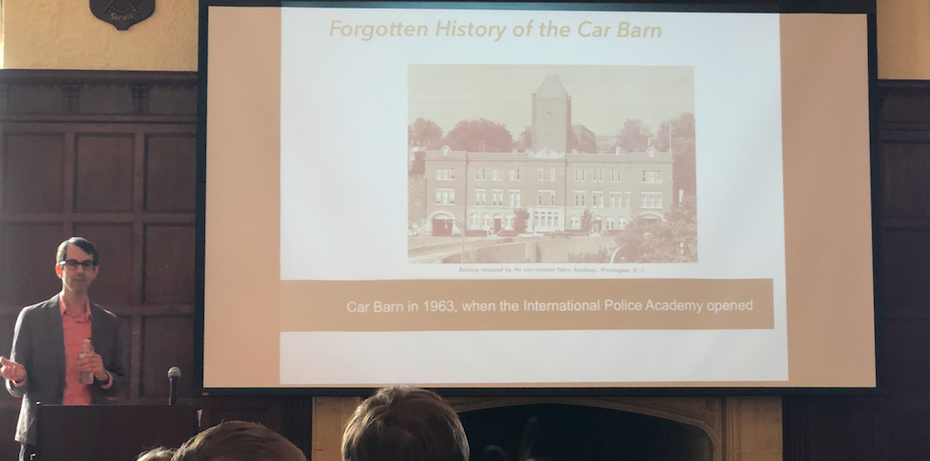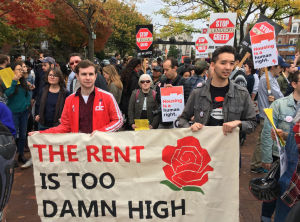The history department’s Americas Initiative as well as the Center for Latin American Studies co-sponsored a lecture given by Stuart Schrader, a professor in the department of sociology at Johns Hopkins University, on the history of the Car Barn during the Cold War and how the International Police Academy (IPA), which was housed there, influenced American and international politics.
The Feb. 19 lecture, titled “The Forgotten History of the Car Barn: Police Repression & Resistance in the Cold War,” covered the Car Barn’s history from 1963 to 1975 and showcased the history of the IPA.
The IPA was part of the Office of Public Safety (OPS), which was a government agency founded by President John F. Kennedy in late 1963 to train the local police forces of American allies around the globe. A total of 77 countries sent representatives to the IPA to be trained in different policing tactics, ranging from firearms instruction to riot control to interrogation techniques.
Many of the IPA classes in the Car Barn were taught in either English or French, and those officers who did not know English took classes at Georgetown while attending the IPA.
The Car Barn’s owner, O. Roy Chalk, leased a large amount of space to the IPA and transformed many parts of the building, originally built in 1895 as a streetcar terminal, to include a gun range in the basement and a library for the sole use of the IPA.
According to Schrader, more than one million police officers in the developing world benefited from IPA instruction, as many of the officers who were sent to and graduated from the IPA were promoted to high offices that often influenced policing policies when they returned to their home countries.
However, controversy surrounded the IPA, and there were reports that it was instructing police officers on the use of torture. Then, when these police officers were sent back, the riot control and torture methods they learned at the IPA were being used to suppress freedom in their countries, often in the name of defeating communism. The emergence of death squads in Brazil, Venezuela, and Uruguay were also attributed to the IPA.
Several other countries with oppressive governments also sent police officers to the IPA’s headquarters, such as Uganda, South Vietnam, Brazil, Iran, Argentina, and Chile.
Schrader asserted that while the IPA was closed in 1975, modern day problems still exist and that the concept of an international police force still remains. Schrader asserts that a lack of strong local police forces is why the occupations in Iraq and Afghanistan have taken so long.
Concluding his lecture, Schrader noted that many in OPS and the IPA thought that a left-wing plot was their greatest threat not only to their individual countries, but also to the countries around them. Ironically, Schrader thought, the anti-imperialist sentiment was not coming from communist nations such as the Soviet Union, China, or Cuba, but within their own nations.





